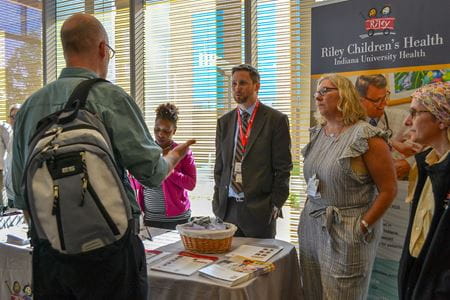Annual Riley Conference: Driving the Future of Child Health, One Patient at a Time
Ashley Dummer Apr 18, 2019

Annual-Riley-Conference.jpg
Author
Ashley Dummer
Ashley Dummer is a Communications Specialist in the Department of Pediatrics. She has worked in Pediatrics since graduating with her degree from Indiana University.
The views expressed in this content represent the perspective and opinions of the author and may or may not represent the position of Indiana University School of Medicine.